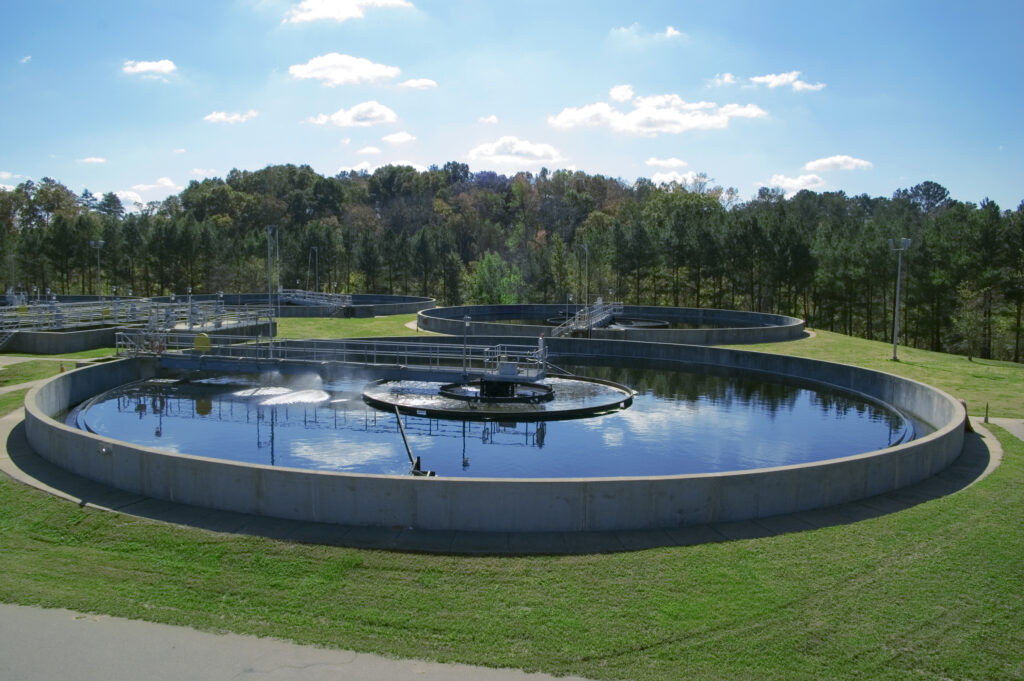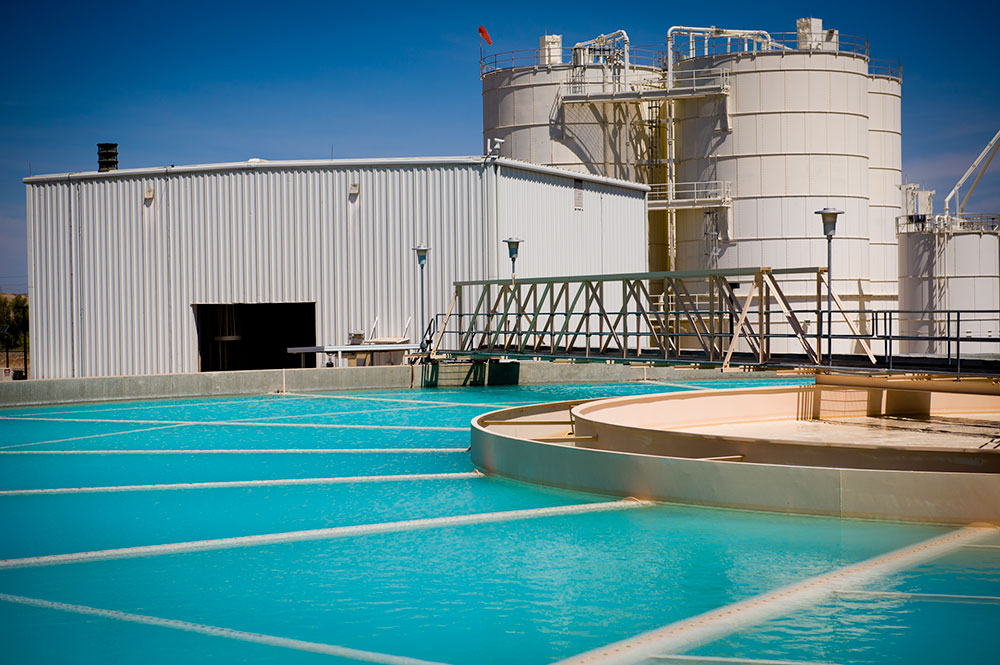Water Technology Startups Explained: Key Facts to Learn
Wiki Article
Exploring Water Technology Startups: Just How They Reinvent Sustainable Solutions
Water Technology start-ups are arising as vital players in the quest for sustainable services to worldwide water concerns. These companies leverage innovative technologies to improve water effectiveness and management. Their contributions attend to pushing difficulties such as shortage and contamination. Nevertheless, in spite of their capacity, they deal with various obstacles that could impact their success. Understanding these dynamics clarifies the future of water sustainability and the duty these start-ups might play fit it.The Importance of Water Technology in Today's Globe
As worldwide water shortage magnifies, the relevance of water Technology comes to be increasingly evident. Water Technology plays a crucial function in addressing the challenges positioned by reducing freshwater sources and boosting need. It encompasses a wide series of technologies, consisting of sophisticated filtration systems, wastewater therapy modern technologies, and wise irrigation options. These developments not only improve the performance of water usage but additionally promote lasting methods throughout different fields, including agriculture, industry, and city advancement.The relevance of water Technology expands beyond source administration. It cultivates durability against climate modification influences, such as dry spells and floods, by giving adaptive services for water conservation and administration. Furthermore, it sustains public wellness by ensuring access to tidy and secure alcohol consumption water. As the globe faces growing water-related difficulties, the assimilation of cutting-edge water innovations is important for promoting lasting development and protecting water schedule for future generations.
Innovative Solutions From Water Tech Startups
While standard approaches to water management have served their objective, a new age of water technology startups is reinventing the sector with ingenious solutions (Water Technology Startups). These firms leverage innovative innovations to attend to pushing water problems, such as deficiency, contamination, and inefficient circulation. Lots of startups use expert system and maker discovering to optimize water usage and forecast need, resulting in more lasting techniquesIn addition, a number of firms focus on developing advanced filtration systems that get rid of contaminants and make water risk-free for consumption. Others explore decentralized water therapy innovations, enabling communities to handle their water sources better. Furthermore, some startups are introducing clever watering services that minimize water waste in farming, promoting environmental conservation.
Situation Researches: Successful Water Technology Startups
Many water Technology start-ups have actually become leaders in resolving global water obstacles through cutting-edge techniques. One notable instance is Xylem, which concentrates on water analytics and smart facilities to maximize water use and reduce waste. Their services have actually been carried out in different towns, demonstrating significant enhancements in water management efficiency.An additional successful startup, No Mass Water, has actually created solar-powered hydropanels that draw out water vapor from the air, providing sustainable drinking water in deserts. Water Technology Startups. This Technology has been deployed in several countries, making sure areas have accessibility to tidy water
AquaVenture Holdings operates a diverse portfolio of water-as-a-service services, attending to water shortage with desalination and wastewater therapy. Their tasks have proven crucial in areas encountering severe water scarcities, showcasing the possibility of innovative water modern technologies to create enduring, favorable influences. These study highlight the transformative potential of start-ups in the water Technology field.
The Duty of Smart Technology in Water Administration
Smart Technology plays an essential duty in modern-day water monitoring by leveraging IoT applications to maximize source use. Data analytics enhances performance by supplying actionable insights, while remote surveillance remedies allow real-time oversight of water supply. With each other, these advancements change how water is handled, advertising sustainability and operational performance.IoT Applications in Water
As water scarcity and monitoring difficulties increase around the world, the assimilation of Web of Things (IoT) applications has actually become a crucial option in optimizing water resources. IoT Technology assists in real-time monitoring and evaluation of water systems, enabling extra effective usage and management. Sensing units deployed in numerous water frameworks can track top quality, circulation prices, and leakage, giving useful data to stakeholders. This information encourages utilities and customers to make enlightened choices, minimizing waste and boosting conservation initiatives. In addition, wise watering systems utilize IoT to maximize water shipment for farming, guaranteeing that crops obtain the right amount of water at the appropriate time. In general, IoT applications are changing traditional water administration techniques, fostering sustainability and durability in water source systems.Information Analytics for Efficiency
Utilizing information analytics is necessary for improving performance in water monitoring. Water Technology startups are progressively using advanced analytics to enhance resource allotment and reduce waste. By evaluating data from various resources, these startups can determine patterns and patterns that educate far better decision-making. Anticipating analytics can anticipate water need, permitting energies to change supply appropriately, consequently decreasing shortages and excess. In addition, real-time information handling makes it possible for the immediate discovery of leakages and inefficiencies within circulation systems, greatly reducing functional expenses. Additionally, data-driven insights empower stakeholders to implement targeted preservation approaches, promoting sustainable techniques. Basically, integrating information analytics into water monitoring not only simplifies operations but likewise advertises long-term sustainability in water resource use.Remote Monitoring Solutions
While typical water management systems frequently deal with inefficiencies, remote monitoring remedies are transforming how water sources are managed. These cutting-edge modern technologies make it possible for real-time data collection and evaluation, enabling stakeholders to monitor water high quality, flow rates, and use patterns from afar. Using sensing units and IoT devices, remote surveillance provides prompt insights that promote proactive decision-making. This shift not just improves functional efficiency yet also advertises sustainability by reducing water waste and enhancing source allowance. Additionally, remote tracking systems can recognize potential problems before they rise, therefore minimizing the threat of contamination or infrastructure failing. As water Technology startups remain to establish these solutions, the market is poised for considerable developments in lasting water administration practices.Obstacles Facing Water Technology Startups
Water Technology startups come across substantial challenges that can impede their development and success. Trick concerns include securing appropriate financing, navigating via complex regulatory atmospheres, and contending in a congested marketplace. These obstacles require calculated preparation and development to conquer.Financing and Investment Challenges
Although innovation in water Technology holds enormous capacity for attending to worldwide difficulties, start-ups in this market often encounter substantial financing and financial investment difficulties. Many investors stay mindful, viewing the water sector as risky because of its complicated regulatory landscape and lengthy growth timelines. Furthermore, start-ups commonly battle to show prompt success, which can hinder prospective backers. Conventional venture resources might overlook water technology, favoring industries with quicker returns, such as tech or consumer products. Moreover, safeguarding grants and federal government funding can be affordable and lengthy, further making complex financial stability. Water Technology Startups. As a result, several ingenious water Technology startups discover themselves in a ragged edge, requiring creative funding techniques to navigate these financial barriers and attain their goalsRegulative Compliance Issues
Guiding governing compliance is a substantial challenge for startups in the water Technology industry, as they need to face a myriad of local, national, and worldwide regulations. These policies often include water top quality requirements, environmental management regulations, and safety methods, which can differ commonly across territories. Startups may discover it hard to browse this complicated landscape, especially when scaling operations or going into brand-new markets. The prices connected with conformity can be significant, drawing away sources far from innovation and product growth. Additionally, hold-ups in getting necessary authorizations or certifications can hinder development and market access. A robust understanding of regulatory structures is important for these start-ups to guarantee sustainable operations and prevent potential legal effects.Market Competitors Dynamics
As water Technology startups emerge in a competitive landscape, they deal with various obstacles that can impede their development and technology. Established firms often control the market, leveraging resources and experience to keep their settings. Startups battle with minimal funding, which limits research study and growth abilities, making it difficult to complete on Technology and prices. In addition, the rapidly evolving nature of water modern technologies demands constant adaptation, more straining start-up resources. Governing obstacles can complicate market entry, as conformity with environmental requirements is vital yet pricey. Finally, attracting proficient ability in a specific niche field provides another barrier, as larger companies may use even more attractive work packages. As a result, these aspects develop a complicated atmosphere for water Technology start-ups aiming to succeed.
The Future of Water Technology and Sustainability
The future of water Technology will likely focus on incorporating expert system and data analytics to optimize water circulation and use patterns. By harnessing real-time data, firms can anticipate shortages and manage sources better. Moreover, sustainable practices will certainly end up being a foundation of the industry, urging circular economic climates where water is recycled and dealt with. Eventually, the ongoing evolution of water Technology will certainly be essential in producing resistant frameworks efficient in satisfying the obstacles positioned by environment adjustment and population growth while promoting ecological stewardship.
Often Asked Inquiries
What Are the Key Metrics for Reviewing Water Technology Startups?
Key metrics for reviewing water Technology startups consist of market potential, scalability, client acquisition expenses, earnings growth, modern technology advancement, regulative conformity, environmental impact, competitive advantage, and group expertise, all essential for figuring out lasting stability and success.Just How Can Individuals Support Water Technology Innovations?
People can sustain water Technology developments by spending in start-ups, supporting for plan changes, taking part in community initiatives, sharing knowledge regarding lasting practices, and promoting awareness of water issues through local events and social media.What Are Common Financing Resources for Water Technology Startups?
Usual financing resources for water technology start-ups include financial backing, federal government gives, crowdfunding platforms, angel financiers, and company partnerships. These monetary opportunities help assist in development and growth in lasting water monitoring modern technologies.
Which Industries Advantage The Majority Of From Water Technology Advancements?
Industries such as farming, energy, production, and local services profit significantly from water Technology developments. These innovations boost water effectiveness, reduce prices, and promote lasting practices, inevitably adding to ecological preservation and resource monitoring.Are There Any Kind Of Regulative Obstacles Certain to Water Technology?
Yes, water Technology deals with regulatory difficulties, consisting of compliance with ecological standards, permitting processes, and varying local guidelines. These complexities can prevent technology and slow down the implementation of brand-new technologies in the water monitoring market.Water Technology startups are arising as vital players in the pursuit for sustainable solutions to global water concerns. As global water shortage escalates, the relevance of water Technology ends up being significantly click here apparent. Others explore decentralized water treatment innovations, enabling areas to handle their water sources more efficiently. One more effective start-up, Absolutely no Mass Water, has actually established solar-powered hydropanels that draw out water vapor from the air, offering sustainable alcohol consumption water in arid regions. Their projects have verified essential in regions facing severe water shortages, showcasing the potential of innovative water modern technologies to create long lasting, favorable influences.
Report this wiki page